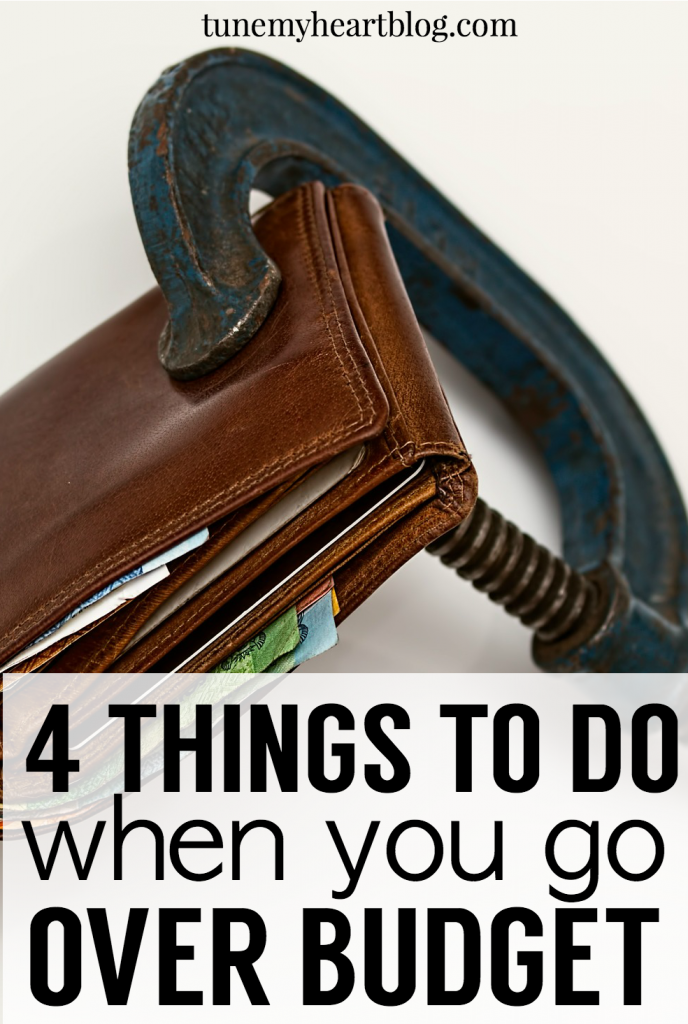Some of the links on this page are affiliate links. When you make a purchase through an affiliate link, I earn a commission at no cost to you. See my entire disclosure policy for all the boring details.
So far in this Budgeting 101 Series, we’ve learned how to start a budget and how to track spending.
You’ve made your budget, tracked your spending and the inevitable has happened you went over budget in a category or 2. Or all of them.
And you feel like this.
Lots of people give up at this point. When you go over budget, it feels like you’ll never get it right, like it’s kind of pointless because you’re never going to get in perfectly.
Remember this – budgeting is meant to be FREEING, not restrictive. John Maxwell said, “A budget is telling your money where to go instead of wondering where it went.” A budget helps you reach financial goals.
Stick with it. Don’t give up!
Plus, then we don’t have to label you a quitter.
A 2013 gallup poll revealed that ⅔ of Americans do not keep a detailed household budget. I wonder if that number is higher or lower now. I wonder what percentage of people have ever TRIED to budget – would it be closer to 100%? And, I wonder what percentage of people who have tried a budget quit when they went over budget 1, 2, or 3 months in a row.
Don’t quit.
You can do it.
HERE ARE SOME PRACTICAL SOLUTIONS FOR WHAT TO DO WHEN YOU GO OVER BUDGET.
1. Even It Out – don’t spend more than you make
If you go over budget in one category, find a category where you’re under-budget to make up for the difference for this month.
Example: Say you notice you already went $25 over budget in entertainment but it’s the 25th of the month, so the month isn’t quite over yet. Find any categories where you think you can NOT spend $25 to even that out. At the end of the day, you need that month’s expenses to zero out with that month’s income.
If you made $2,000, you can’t spend $2,025. So you have to find the $25 elsewhere and not spend it.
2. Adjust next month’s budget for the categories where you’re over-spending consistently.
I budgeted $400 a month for groceries & household for a long time. We always spent closer to $450 and I was always disappointed in myself. Finally we just ‘upped’ that category to $450 and voila, I was able to stick to it. $400 was unrealistic. Was it humanly possible? Probably. But it wasn’t happening. The realistic number was $450.
Be realistic. “Up” the budgeted amount if you’re always overspending, but make sure to take that money from a different category. If you’re going to spend more in eating out, maybe you’ll spend less on clothes. You have to pick and choose. Money isn’t unlimited when you’re committed to staying out or getting out of debt.
3. Pay your savings & debt goals first
For the first few months of budgeting, work to save as much as possible until you are living on last month’s income. Meaning, at the beginning of September, you already have all the money you need in September, you are not waiting until the paycheck on September 5th clears to pay your bills.
One bonus of getting a paycheck or a month ahead is that you can make your savings payment or debt payment FIRST before anything else. If you wait until the end of the month to pay debt or put extra money in savings, it is so much easier to justify extra unplanned spending… we have done that time and again. Now, as soon as all the expected income for September is in our account, we pay our budgeted “extra” amount to loans. Right away. At the beginning of the month. Then, there is no extra money for extra unplanned spending. It literally just doesn’t exist. We already paid it to loans. If something comes up that we want to spend money on, we either have to say no, wait, or take the money from a different category. If any EXTRA income comes in during the month that we weren’t planning on (you know, like the lottery or multi million dollar inheritances), we just pay it straight out to loans. Once in a while, we’ll use an unplanned extra income for a special date or cooking a fun dinner with friends.
4. Remember – Your budget determines your spending, not your bank account balance
I’ve already mentioned in this series that the key to living on a budget is to let the budget categories dictate spending.This is ESPECIALLY true if you’re going to get a month ahead. If this is the first time ever that you won’t be living paycheck to paycheck, then you’ll be tempted to spend like crazy as you build up your checking account balance. DON’T SPEND YOUR MONTH-AHEAD MONEY. IT’S NOT THERE FOR SPENDING! IT’S FOR REGULAR LIVING NEXT MONTH. (Sorry for figuratively shouting at you with my caps lock.)
So, did you go over budget the first few months?
We went over the first few years, so don’t feel guilty.
Guilt isn’t helpful in budgeting.
Adjust & readjust.
Keep planning.
Keep rethinking.
Don’t give up! You can do it.
Comment below or contact me if you need to bounce budgeting ideas off of someone or if you want to schedule a FREE budget consulting session. I’d love to walk through your budget with you!




Ok, I hope I can explain this well b/c it’s a little confusing! Haha 🙂 We set our student loan payment minimum to be as LOW as possible so that we could get ahead. This was a minimum payment that totaled about $500/ month. It was a tiered plan where we’d pay less at the beginning and more at the end over the course of 10 years. Anyway, we built up a month’s EXPENSES (not income) and then decided to dump it and instead just stay a paycheck ahead. We get paid every other week, which is 2 times a month most months. (2 months a year, there’s a 3rd paycheck, which goes straight to loans…).
Long-term we plan to be one paycheck ahead. But we like the ‘motivation’ of not having too much extra in the bank while paying down debt, so we actually only keep ourselves one paycheck ahead. So, the last paycheck in August and the first paycheck in September are for September. This way, by the first of any given month we have half of our income in the bank. Which, coincidentally is about how much we live on. So basically, the last paycheck of August covers most of our expenses and the first paycheck in september goes to debt (approximately). As soon as that first paycheck in September (which is the second paycheck for that months’ expenses) clears, we make the budgeted payment to loans for September so that we don’t spend it. We always keep $1,000 in the bank as our emergency fund. Long term we’ll have a 3-6 month emergency fund.
Does that help or make sense at all?
Out of curiosity, how long did it take you to build up that extra month’s worth of savings? As someone whose budget is incredibly tight with student loans, it’s taken some pretty extraordinary circumstances to even get half a month’s worth of savings, and I don’t have wiggle room for a savings payment at the moment.